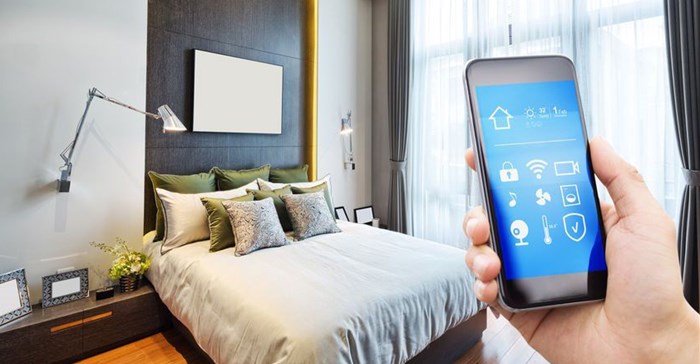The hospitality industry has always been cut-throat; guests are spoilt for choice and as a result hotels, large and boutique have to keep pace to ensure they offer features that differentiate them from the competition.

Source: 123RF
While traditional challenges such as energy cost, cleaning expenditure and customer loyalty continue to define the roadmap to hotel profitability, technology also has a major part to play in not only raking up those review stars but also optimising operations.
Technology investments should be focused not only on higher comfort and convenience standards but also solutions that allow hotels to run more efficiently, particularly in a time when energy provision remains a foreseeable challenge.
Looking at guest convenience and comfort, today’s premier hotels feature innovation such as using phones as virtual keys and offer a host of room options such as the ability to launch live chats with front desk staff from their smartphones, “touchless” operation in-room entertainment, room service, and comfort control systems linked to lighting, temperature, and curtains.
The benefits are real
From hotel owners and operators’ perspective, technology innovation can offer important benefits:
- Improved guest wellbeing and comfort – guests have access to several human-to-room interface options to increase their level of comfort. These room control solutions can be configured via an easy-to-download smartphone app.
Other solutions include flat wall-mounted touch panel interface screens with customised surfaces that make it easy for guests to experience contactless, remote hotel check-in/out, and room service and concierge capabilities.
- Operational and energy-efficiency improvement – room control solutions allow conditions to be adjusted automatically, based on preset parameters, when rooms are either in “occupied” or “unoccupied” status.
Schneider Electric’s EcoStruxure for Hotels Guest Room Management Solutions for example utilises occupancy-based energy management to adjust room conditions while guests are away, and quickly restores those settings as soon as they return.
When the guest room is unrented or unoccupied, the room temperature reverts either to setback mode (unoccupied) or deep setback mode (unrented). Curtains are closed to mitigate solar heat gain or loss and to preserve furnishings.
Underfloor heating, mirror heating, and lights are turned off. This energy-management functionality drives deep energy savings and reduces carbon emissions.
Moreover, during off-peak times, occupancy can be allocated in certain parts of the hotel which for example, has seafront views while the rest of the hotel can remain unoccupied, using minimal energy until peak season kicks off.
- Faster, more responsive maintenance – maintenance staff can remotely identify issues before entering a room and quickly address them with minimal disruption.Predictive maintenance, via the use of local sensors and analysis software, provides early warning signs before in-room electrical or mechanical systems break down. This allows maintenance staff to come in during off-hours to perform needed maintenance.
The right solutions
When choosing a solution to improve occupancy and overall building-management efficiency, it's important that owners and operators consider the following technology solutions:
- A connected room solution, optimised for hotels. These systems feature a modular, IoT ecosystem that provides occupancy-based energy management and guest-room control enabling guests to fully customise their in-room experience.
- Guest-room management software which - in tandem with a connected room solution - provides centralised visibility and control of guest rooms and other services like BMS (Building Management Systems), PMS (Property Management Systems), door lock, housekeeping- and maintenance systems for remote troubleshooting, proactive maintenance, and optimised workflows.
- Open-integration BMS that monitors, manages, and controls building operations all on one system. Built on open standards and end-to-end cybersecurity, it integrates and facilitates data exchange from connected room solution- and guest-room management software to improve productivity, reduce guest complaints, and enable superior operational efficiency and guest-room functionality.




















































